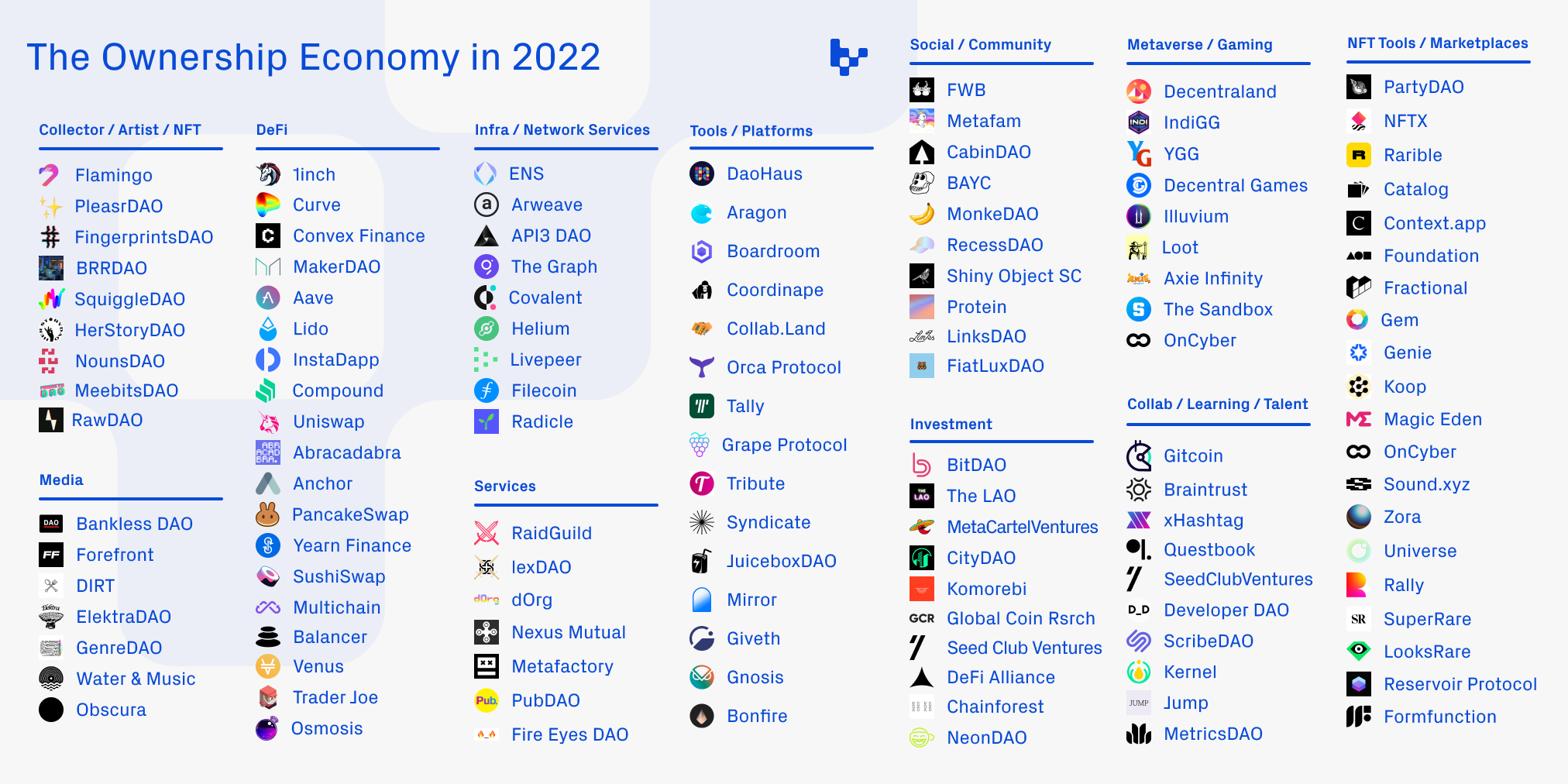
A primer on the state of web3
Variant Team
Apr 28th, 2022
web3的入门读物
<aside> 💡 web3 的入门读物
</aside>
Variant Team
<aside> 💡 Variant 团队
</aside>
2022/4/28

By Li Jin, Geoff Hamilton, Jesse Walden, Spencer Noon, Derek Walkush and Medha Kothari
<aside> 💡 作者:By Li Jin、Geoff Hamilton、Jesse Walden、Spencer Noon、Derek Walkush 及 Medha Kothari
</aside>
Thirty years into the development of the world wide web, a handful of companies control most user attention and advertising revenue, with closed ecosystems that hold back innovation by independent developers. The economic interests of the biggest internet platforms are poorly aligned with their most valuable contributors: their users.
万维网发展的这 30 年来,少数几家公司吸引着大部分用户的注意力,控制着大部分的广告收入。闭塞的生态系统限制了开发者的创新能力。头部互联网平台的经济利益与其最有价值的贡献者—用户的利益严重失衡。
Ownership has long been embraced by Silicon Valley startups to align incentives among employees through option grants. Still, the vast majority of internet users own exactly 0% of the services they contribute to. Creators don’t own their content, developers can’t control their code, and consumers can’t influence the policies or decisions of the platforms they use. This scenario, which once went unquestioned, looks increasingly archaic.
长期以来,硅谷的初创公司一直掌控所有权,通过给予员工期权来调整激励措施。尽管如此,大部分的用户对自己贡献的服务毫无所有权。创作者不能拥有自己创作的内容,开发人员不能控制自己编写的代码,用户无法干预平台的使用政策,也没有任何决策权。这种情况曾经看起来是如此理所应当,而现在渐渐被时代抛弃。
<aside> 💡 长期以来,硅谷的初创公司一直掌控所有权,通过给予员工期权来调整激励措施。尽管如此,**大部分的用户对于自己曾贡献过的服务,竟然毫无所有权。**创作者不能拥有自己创作的内容,开发人员不能控制自己编写的代码,用户无法干预平台的使用政策,也没有任何决策权。这种情况曾经看起来是如此理所应当,而现在渐渐被时代抛弃。
</aside>
This is starting to change via the ownership economy—often referred to as web3—with products and services that turn users into owners.